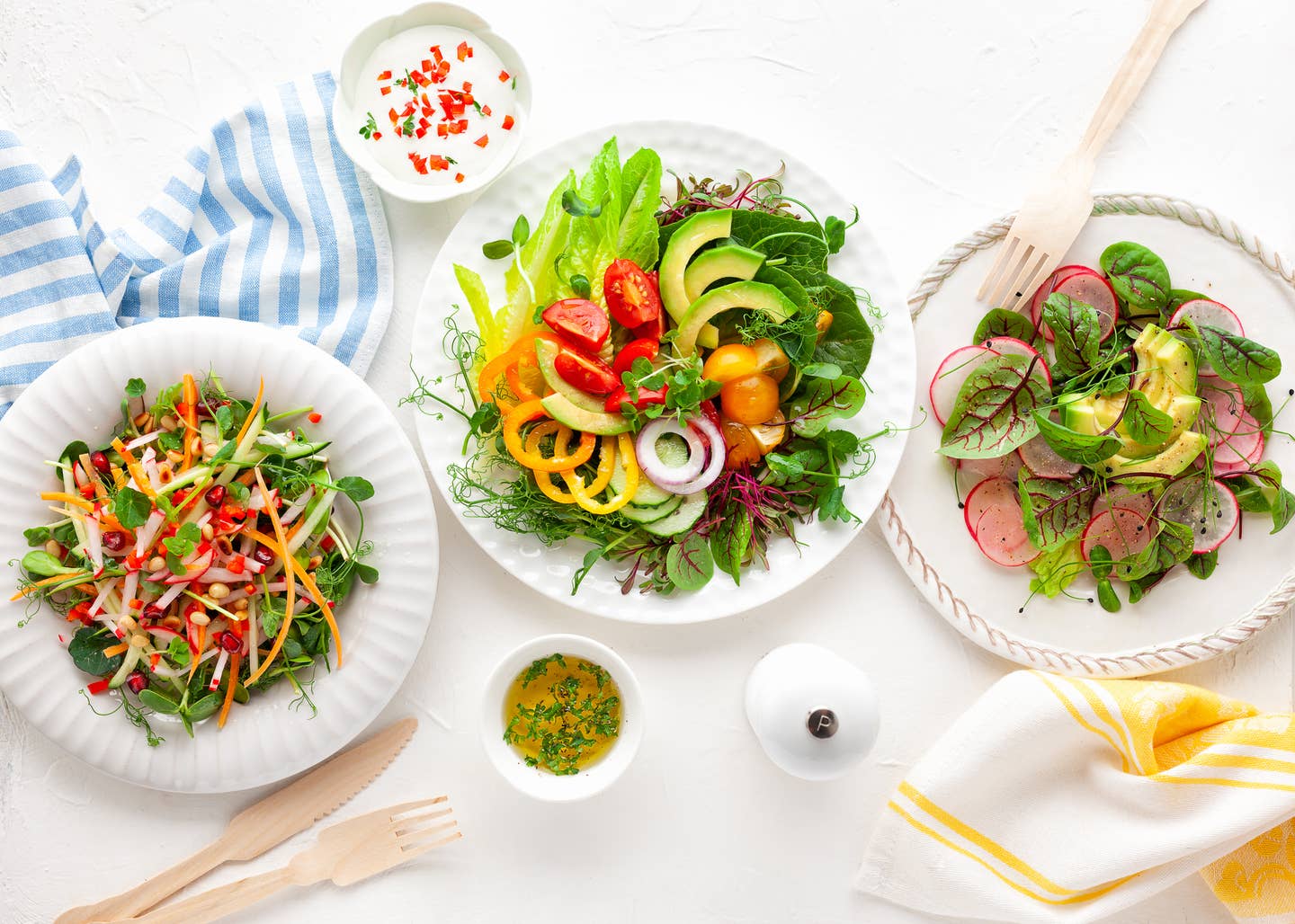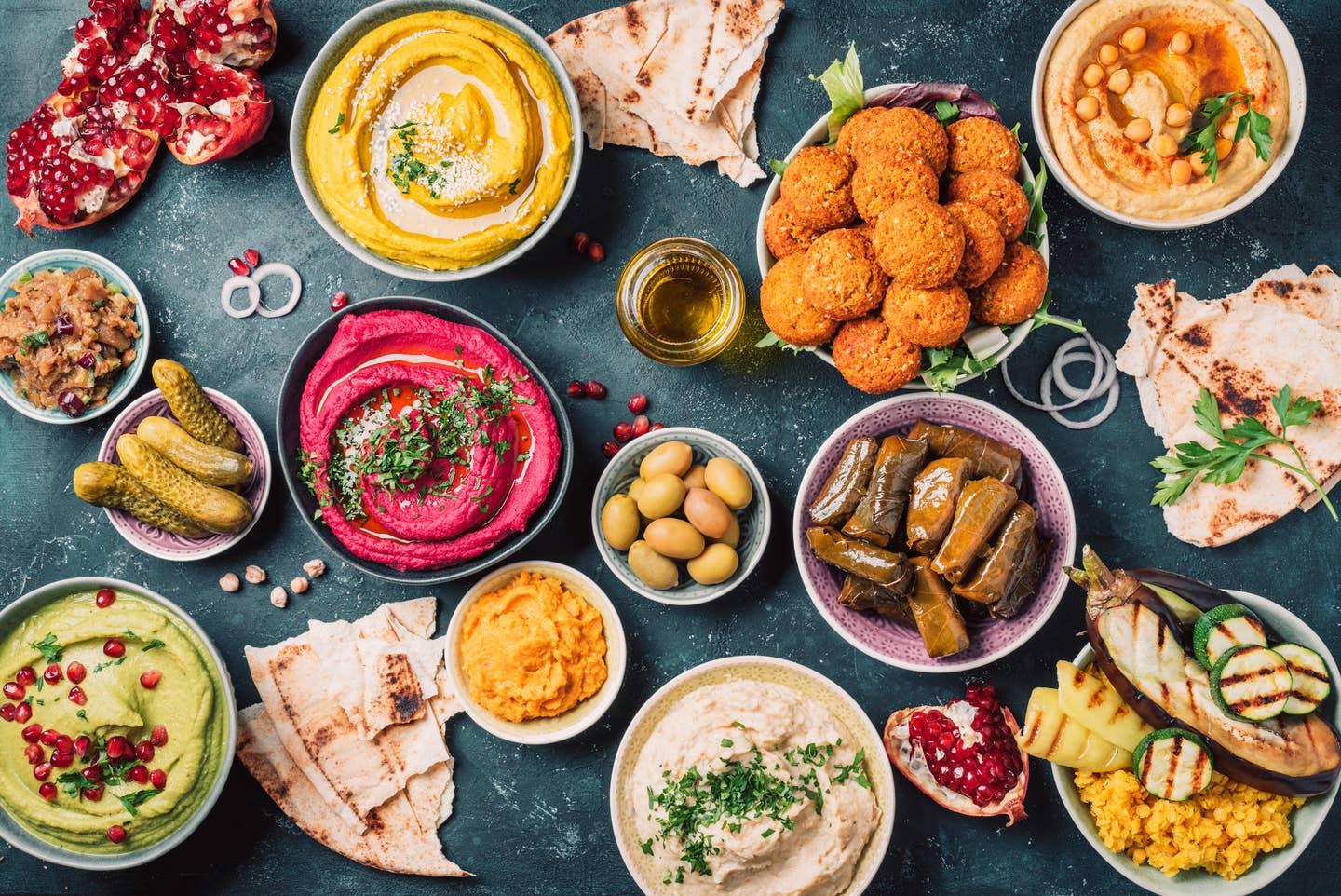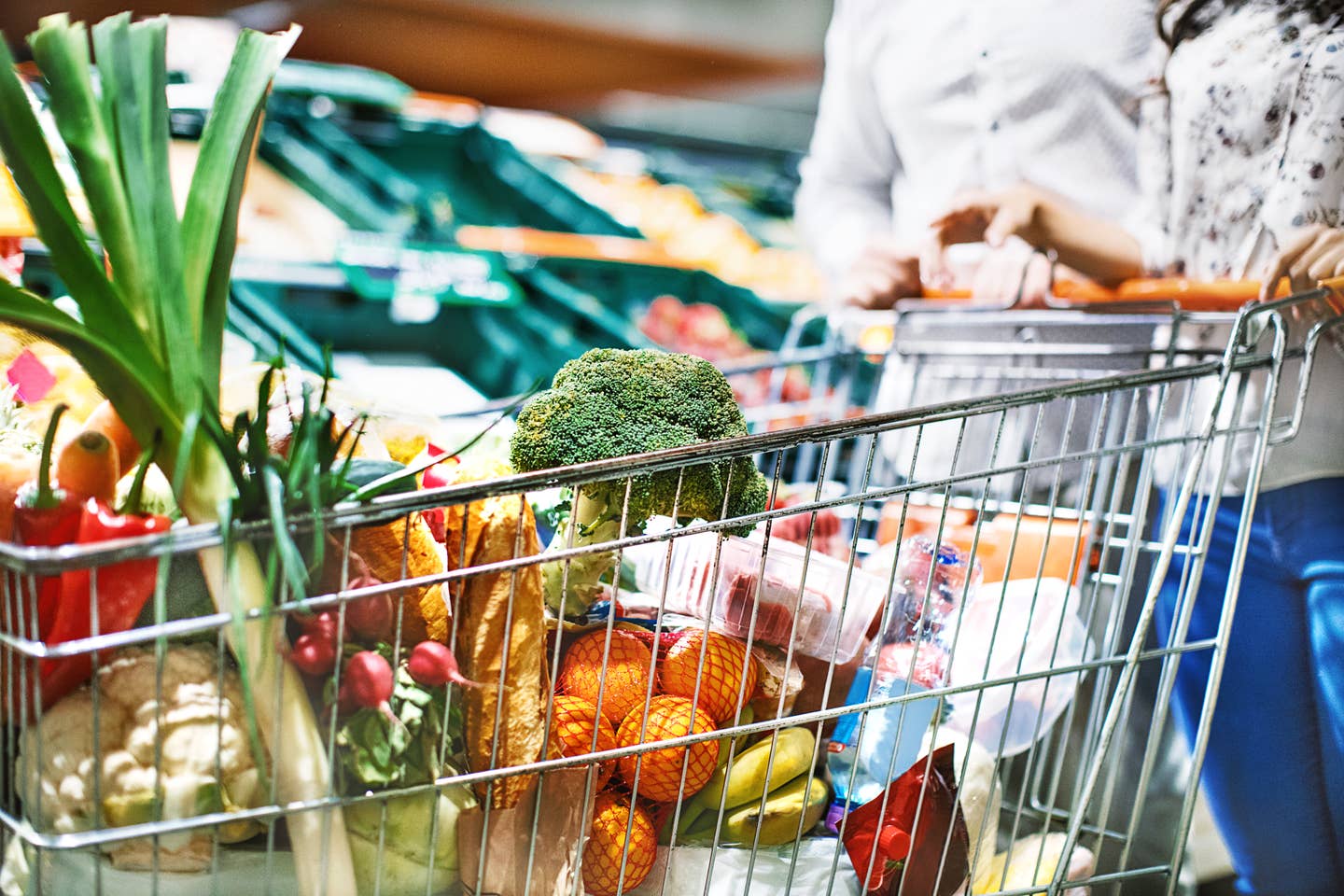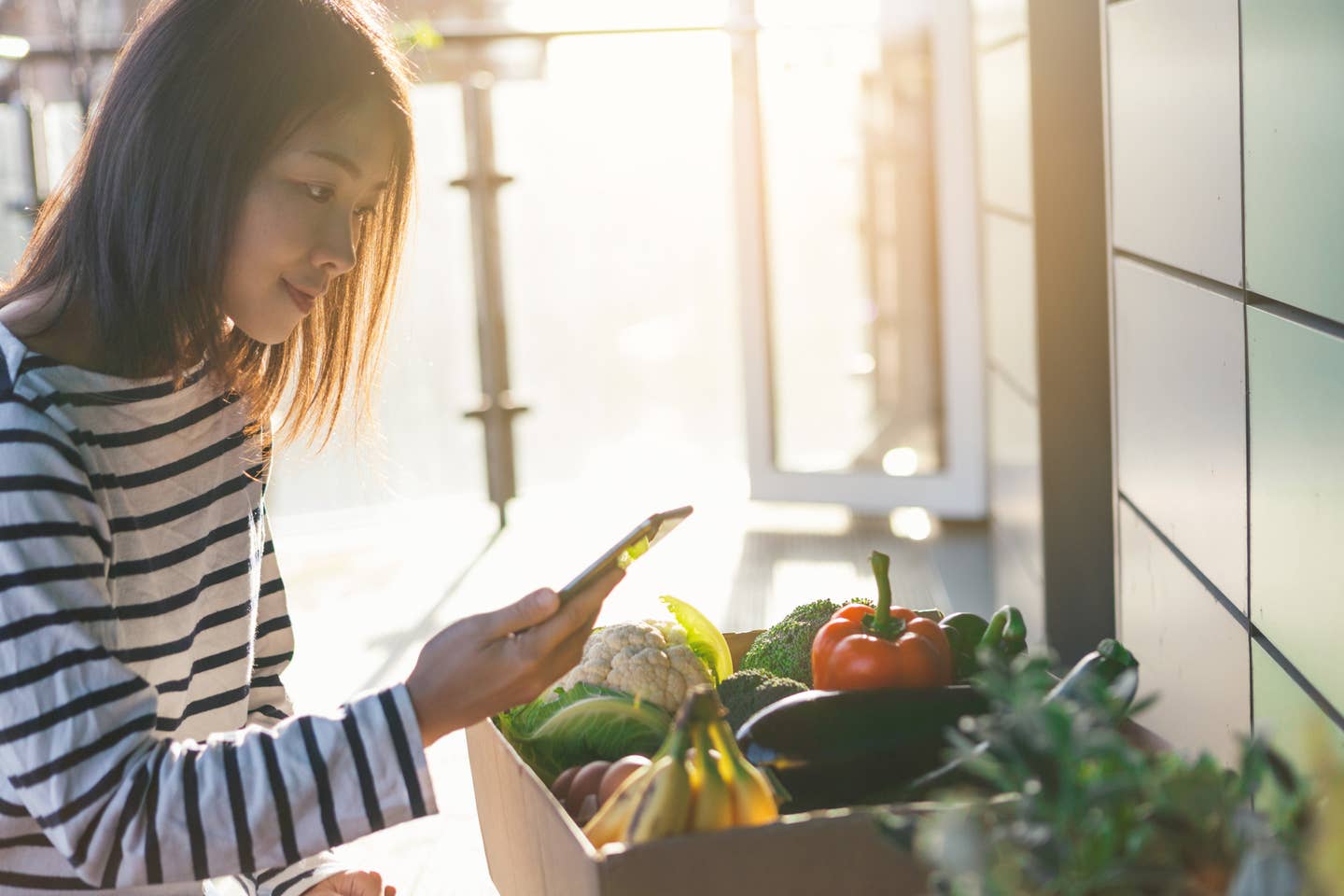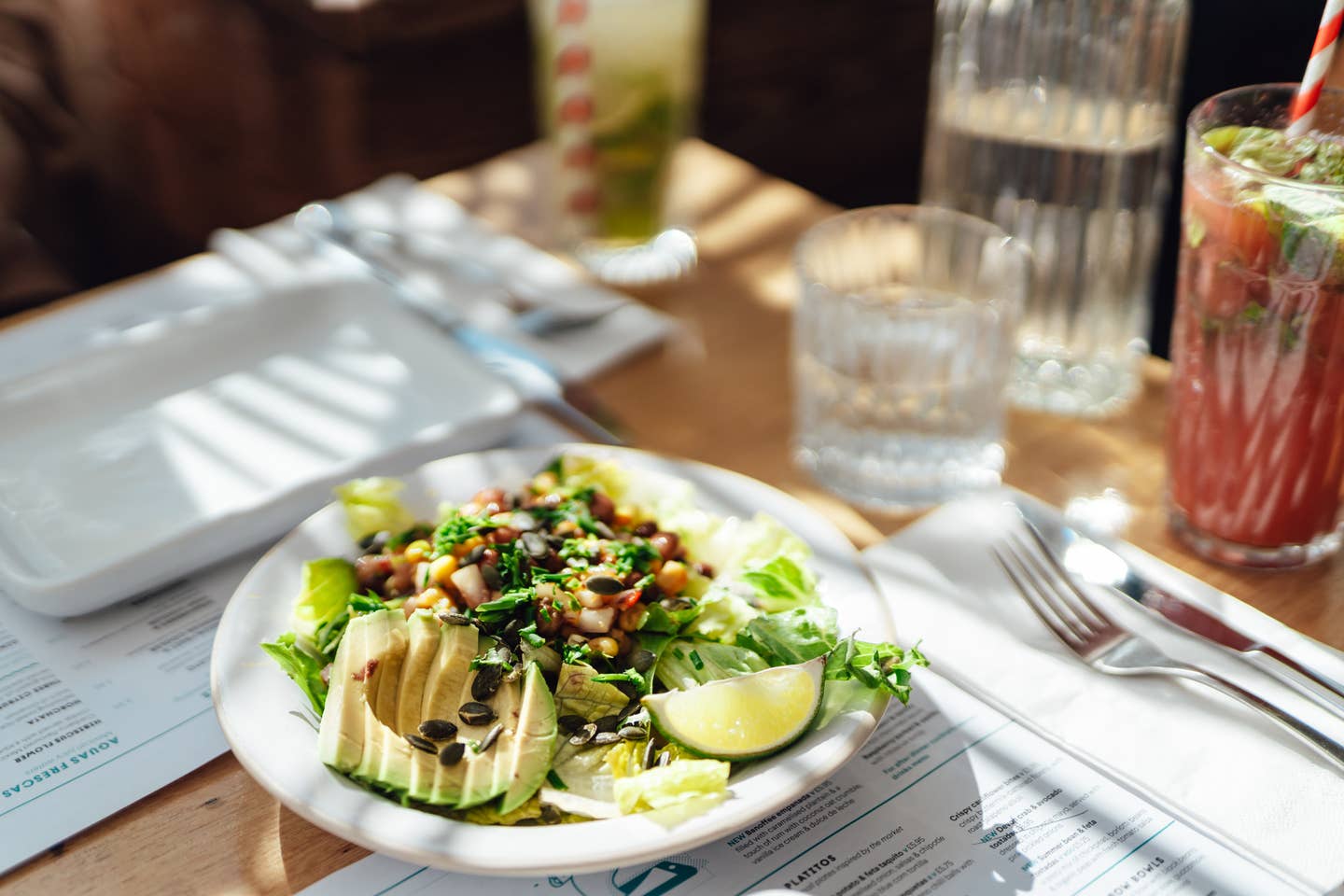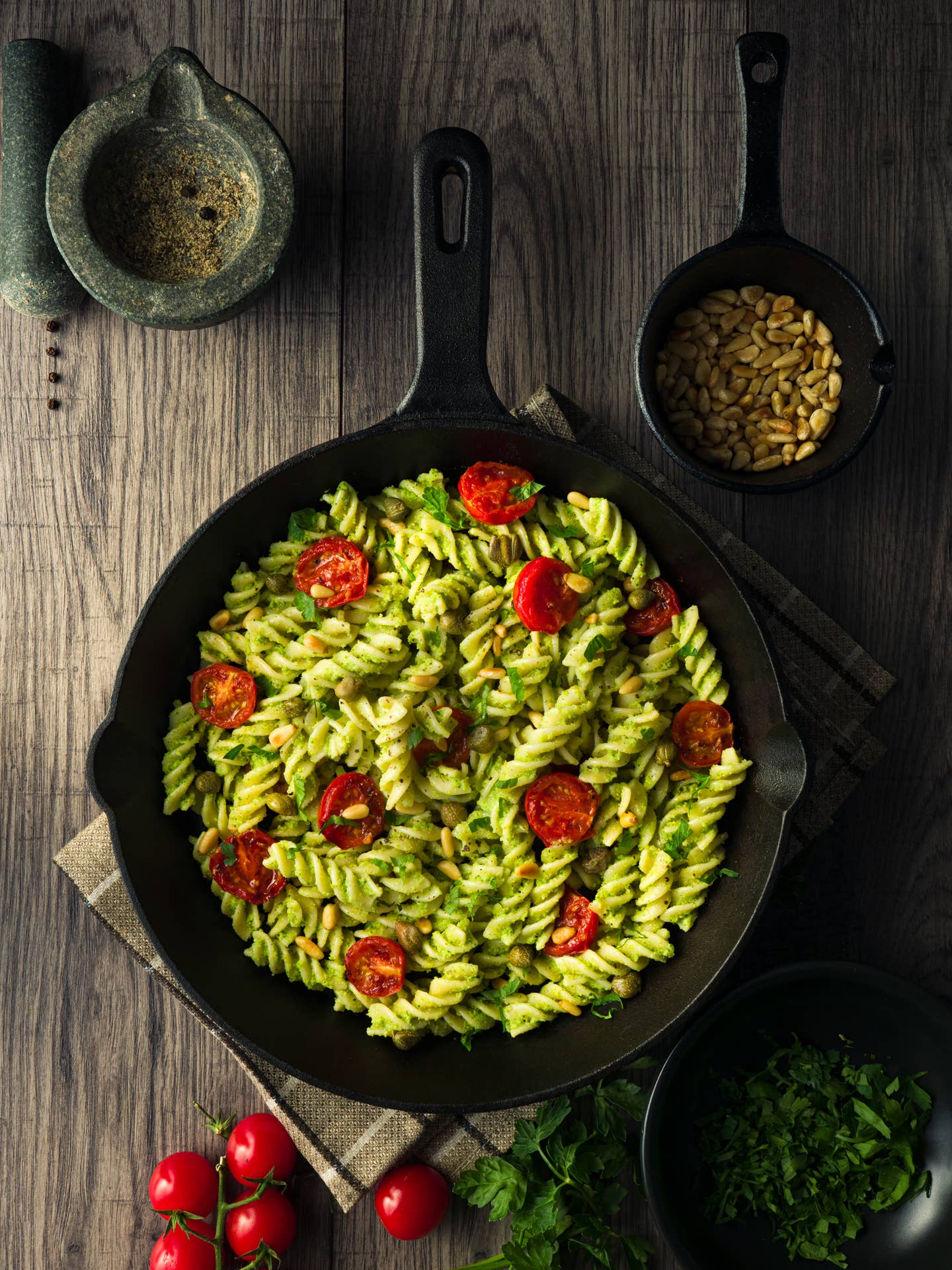
Food Is Food: 5 Lessons I Learned Going Plant-Based
Food is food. What I mean by that is fake food is not food. Something that has ingredients that you don't know how to pronounce, or what exactly they are, or why they are in your meal, is usually a packaged item, often mimicking a real food that at the end of the day you may be better off eating than the substitute that is pretending to be it. This goes for fake burgers, fake chicken, or fake fish. Manufacturers call it plant-based but to me, it should be called Plant-Manufactured, as in made in a food plant, far from nature, and created out of a need to look and taste like the real thing. The first thing I learned was to check the labels.
If a whole food like chickpeas or almonds or peas is the first ingredient, that's a pretty good indication that it's healthier than something that has an amalgam of fake foods high up on the label. Palm oil and coconut oil (both tropical, thick, and often used instead of butter) are full of saturated fat so if heart disease runs in your family, proceed with caution. Look out for additives like carrageenan, added to food as an emulsifier, but it's been linked to cancer. (Sorry all you Beyond Meat lovers, but they use it in their burgers. I know, heartbreaking.)
But those are the details. The fact is I have loved this journey and the lessons it has taught me, including how to try to do a little better every day, and not recriminate if some animal-based product ends up getting into my food. If everyone tried to go more plant-based it would be better for the planet and animals and our health than if a small fraction of us hued closely to the vegan lifestyle. Trying is the point, succeeding is all based on your definition of the goal.
So go plant-based your way, on your own terms, and let me know how it's going. As a summer of climate crisis and a pandemic of health emergencies have each shown us, separately but in tandem, our food choices matter, and we are all in this together.
The 5 Lessons I learned Gong Mostly Plant-Based
1. Plant-Based Carbs are Still Carbs
That means the pasta with pesto and no cheese is still loaded with energy and if I don't burn off that energy it's not going to go away, but stick to my body in the form of excess fat that I can burn off later. (Sorry but zoodles don't do it for me!) Because of this lesson, I have actually put on a bit of weight going plant-based, though I also lowered my cholesterol by 30 percent! But don't worry, if you want to go plant-based and lose weight, you can easily do it. Just load up on the legumes at lunch, and stay away from the non-dairy ice cream after dinner, something I myself have trouble doing since it's just that delicious. (I'm looking at you, Ben & Jerry's. You have ruined my snacking life.)
But on the flip side, going plant-based gives me a desire to eat healthier. I have given up Diet Coke since I learned aspartame turns into formaldehyde in the body. And I was completely addicted to Diet Coke. it just seemed so hypocritical: Some chemicals and not others? So now I drink water infused with mint and lemon, and I drink tea in the afternoon and I've cut down on coffee, from five or six cups to one or two a day, since I know that more than two cups a day is linked to an increased risk of dementia (which I have seen up close in my mom and it's not something I want to particularly emulate). To me, being healthier means working out every morning and being generally more conscious of the decisions I make as a consumer. Plant-based has become a metaphor for my life: I want to try to do better in every category.
2. Plant-Based Protein is Clean Protein
Here's the best news of all about going plant-based: It's EASY to get your protein! Yes, easy. I have to repeat this and capitalize it since there are people (actually most of the people I know) who think protein has to come from a cow or a chicken, a pig, or another walking or swimming being. the fact is they eat plants. Those plants are full of protein. There's no better protein source than a salad of chickpeas, greens, and a variety of vegetables that deliver, along with the protein, a host of nutrients your body needs to operate at its optimal best. The clean protein of plants is also devoid of saturated fat that comes in your red meat and dairy. When you eat protein, and fat, your body is energized and not tired. Eating fat clogs up the bloodstream and leads to plaque, high blood pressure, heart disease, strokes, and more lifestyle-related diseases.
You don't have to love tofu. I don't, and I tell myself that's okay since soy is still controversial even though studies say you can have a portion a day and it is likely protective against breast cancer. Still, I prefer to get my protein from legumes like chickpeas, lentils and beans, and nuts and seeds including chia seeds and sunflower seeds. In fact, I love snacking on nuts. Hungry? No problem, so am I as an athlete who trains and when I get out of the pool I will eat a big meal, every single time. You can eat almost all the vegetables and fruit you want and fill up on healthy foods that are nutrient-dense and calorie-scarce. Even eating an avocado a day won't make you fat; in fact, studies indicate it helps you burn fat.
Amazing news for all you protein-seekers: You don't need as much as you think. Here's exactly how much protein you need in a day, depending on your training, age, and weight.
The anti-inflammation diet is also a plant-based diet and doctors recommend anyone who wants to lower inflammation and avoid heart disease go plant-based, or at least the Green Mediterranean Diet, which cuts out most of the animal products like cheese, dairy, and meat.
Athletes like tennis stars Novak Djokovic and Venus Williams, the NBA's Chris Paul, soccer super-mom Alex Morgan and dozens of others are plant-based or fully vegan and every day it seems like another athlete has ditched meat and dairy for the sake of lowering inflammation in their bodies and recovering from workouts faster. More women competing past 40 in triathlon tell me (unsolicitedly) that they are plant-based and I think: This is the secret weapon to longevity in your sport. It's such an advantage that sometimes I wished I had kept it to myself when I'm getting passed by women faster than me (yes, I am that competitive when I get out there).
3. Eating Clean Means Skipping the Junk
People ask me "How do you feel?" and the answer is that I feel great when I eat great, meaning clean whole foods from nature, like vegetables and fruit, nuts and seeds, and skip the junk. But sometimes, I can't help myself and I dive into the potato chips (which are technically plant-based) or eat sugary treats (such as non-dairy ice cream or dark chocolate) or cheat. Yes every now and then some real cheese in the form of parmesan gets into my pasta (not my choice, obviously, but I don't try to throw it away either since that's a waste). Or I have fish.
When I do that I feel disgusted with myself. The slightest dairy makes my bad knee swell up, and the sugar and salt in processed foods leave me bloated and generally feeling back about myself since it points out that my best intentions are not always my actions, and closing this gap is a goal for me. When I occasionally eat fish it makes me feel bad for the fish (I saw Seaspiracy and am appalled at how we are over-fishing the oceans and have little regard for these creatures) and I wish I could tell you I never ever ate fish, but that is just not true. I know that as an athlete I don't always get all the plant-based protein my body needs (as much as chickpeas are my go-to) and as you age you need even more protein since you lose muscle every year on this planet, which is why weight training is so key. I can say that I stay 95 percent plant-based but I know that when I "mess up" I need to forgive myself and move on.
4. I Love the Planet and Animals and Feel Better Eating Plant-Based
When I eat purely plant-based and don't allow myself any other choice, such as a chickpea pasta for dinner, a healthy bountiful salad for lunch, and a light breakfast, I feel good about myself and the choices I have made. I know that the planet is better served because I have not eaten red meat or a full serving of dairy or chicken or pork or any other animal product in 28 months. I feel better because I know that studies tell us that a diet high in plant-based whole food (not chips, ice cream, or packaged foods) is beneficial when it comes to our health.
To lower your risk of some cancer, along with heart disease, Alzheimer's, and dementia, eating leafy greens, vegetables, fruit, nuts, legumes, and seeds is best for us. And I love all those foods. I want to eat healthier for the planet, animals, and my own personal health. With a bunch of ugly outcomes in my family, I am doing the best I can to stay healthy as long as I can. One day I hope to bike, ski, and swim with my grandkids, and have the strength and mental acuity to keep up. I also want to be cheerful and productive, and there are new studies that show plant-based diets are helpful when it comes to boosting mood, focus, and staving off dementia.
5. I Have Learned to Forgive Myself for Mistakes and Move On
Everyone has to choose their own path in life, and I never want to sound as if my path is right for everyone else–diet is so individual, like any other intimate decision you make. But now that I have started down this plant-based path, it would be hard for me to ever go back. People ask me: Do you think you will ever eat meat again? I don't ever want to. Occasionally if a bit of cheese makes it into my diet, or a restaurant uses butter when they insisted to me it would not be in the dish, I know that this happens.
We all make mistakes, but I just chalk it up to being human and I move on. It's a lesson that I wish I had learned earlier in life since I self-recriminate and play over and over in my head the stupid food choices or the regrets that I have, some behavioral, others unintentional. Regret is part of life and so is the desire to wake up every day and do better. Instead of getting down on yourself, I have learned, it's more productive to give yourself credit for trying. You will never achieve what you don't try to endeavor. I see plant-based living as a lifestyle, not a restriction. I love eating this way and I never feel deprived. I feel fortunate that I made the decision to try.
Want to start eating a more plant-based diet? Sign up for The Beet's 7 Day Beginner's Guide. And let us know how it's going! We are rooting for you every step (and plant-based choice) of the way.
Top 10 Sources of Plant-Based Protein According to a Nutritionist
1. Seitan
Protein: 21 grams in ⅓ cup (1 ounce) Seitan isn’t as popular as other proteins, but it should be! Made from wheat gluten, its texture resembles ground meat. It’s often used in pre-made veggie burgers or meatless nuggets. Seitan has a savory taste, like mushrooms or chicken, so it works well in dishes that call for an umami flavor. With a hearty texture, seitan can be the star of practically any vegan main dish. Add it to stir-fries, sandwiches, burritos, burgers, or stews. Like tofu, seitan will take on the flavor of any marinade or sauce.
2. Tempeh
Protein: 16 grams in 3 ounces If you like a protein with a bit of bite, add tempeh to your list. Made from fermented soybeans, tempeh has a slightly nutty flavor and is pressed into a block. Most varieties include some sort of grains, such as barley or millet. Not only is tempeh a plant-based source of protein, but the fermentation process also creates good-for-your-gut probiotics. You can cut tempeh right off the block and use it as the base for a sandwich or pan-fry it with some sauce. Or, crumble, heat, and make it the star of your next taco night.
3. Lentils
Protein: 13 grams in ½ cup cooked Lentils come in multiple varieties--red, yellow, green, brown, black. Regardless of the type lentils are small but mighty nutritional powerhouses. They pack a good amount of protein as well as iron, folate, and fiber. When cooked, brown lentils retain their texture and can be the base for a grain bowl or make a hearty substitute for ground meat in meatballs, lasagna, tacos or Bolognese. Red lentils are a bit softer and make a nice add-in for a hearty soup, chili, or stew.
4. Hemp Seeds
Protein: 10 grams in 3 tablespoons Hemp seeds are a tender and nutty seed, derived from the hemp plant. They contain good amounts of omega-3s, iron, folate, magnesium, phosphorus, and manganese. They are also a solid source of both soluble and insoluble fiber, which helps to keep your digestive tract healthy and humming. Because they pack a double whammy of protein and healthy fats, hemp seeds can help satisfy hunger, preventing those embarrassing stomach growls as you slog your way to your lunch break. Add them to your morning smoothie or sprinkle them on top of yogurt, oatmeal, or even a salad.
5. Tofu
Protein: 9 grams in 3 ounces (⅕ of a block) Made from coagulated soybeans, tofu is the most popular plant-based protein. Soy is one of the only meatless "complete" proteins, meaning that it contains all of the essential amino acids that the body can’t make but needs for muscle and immune function. With 15% of your daily calcium needs, tofu is also a good replacement for dairy.
6. Edamame
Protein: 9 grams of protein in ½ cup This sushi appetizer is a nutrient powerhouse, so eat it anytime. Edamame is really just another name for soybeans in their pods. Let’s list off some stats--a small ½-cup serving of edamame has 9 grams of protein, 15% of your daily vitamin C, 10% of your daily iron and 16% of your daily fiber. Keep a bag of edamame in your freezer to serve as a fun-to-eat side dish or opt for the shelled variety to toss into salads or a grain bowl.
7. Quinoa
Protein: 8 grams per cup (cooked) Quinoa is an ancient grain and since it's gluten-free a great choice for anyone avoiding gluten. Add it to your burger recipe to create filling texture, or instead of meat in your taco or burrito. Quinoa is among the healthiest foods on the planet, delivering phytonutrients that have anti-inflammatory qualities, so keep it in your pantry for any meal that needs a filling grain. Just remember to soak it and rinse before cooking to get rid of any bitter taste.
8. Black Beans
Protein: 7 grams in ½ cup (canned) Eating beans on the regular might as well be a prerequisite for a plant-based diet. Not only are canned black beans inexpensive, but they also contribute 10% of your daily iron and 25% of your daily fiber to your diet. For less than $1 a can, beans can be the star of tacos, quesadillas, salads, soups, burgers, or dips.
9. Amaranth
Protein: 6 grams in ⅔ cup (cooked) Chances are you’ve never cooked amaranth. But you should, since this tiny, gluten- free grain is packed with almost 30% of your daily fiber and 20% of your daily iron. Cook it like a traditional grain to yield a soft, porridge-like texture. Many people add amaranth to other a hot breakfast cereal mixture, like oats and quinoa. It also pops like popcorn. Toss it in a pot with some oil and wait for it to pop up into a nutritious snack.
10. Peas
Protein: 5 grams in ⅔ cup If peas were one of your most hated veggies as a kid, it’s time to give them another chance. These green beans are a great low-calorie protein to keep in your freezer. Sure, they don’t always taste great when steamed or microwaved (who wants to eat mushy, overcooked peas?), but they do blend well into a yummy puree that can be slathered on toast. To amp up the flavor, add some lemon juice or mint to your mix before you blend.
More From The Beet
